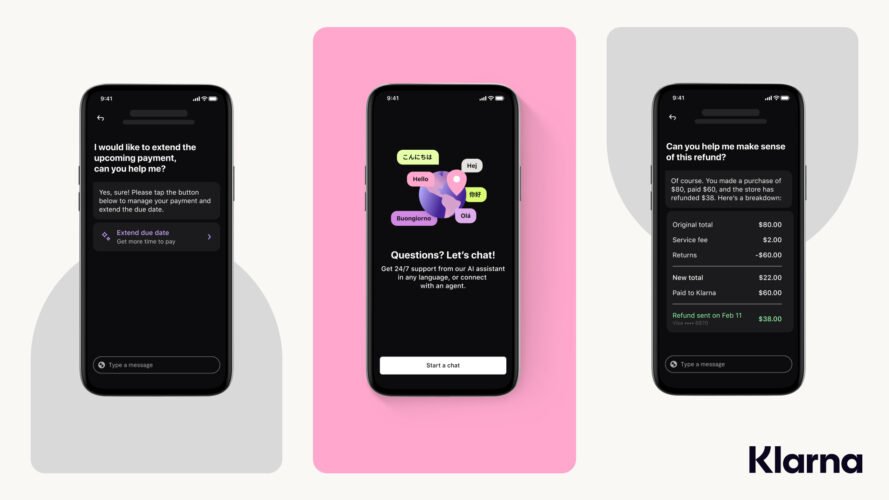Swedish fintech company Klarna claims that its artificial intelligence (AI) assistant, which is programmed to answer customer service questions, is doing “the equivalent of 700 full-time agents.”
The assistant bot, which is powered by OpenAI, has been fully operational for about a month, and has already had 2.3 million conversations–two-thirds of customer service chats–and has managed to score similarly to human agents on customer satisfaction surveys, according to a blog post written by Klarna.
The company additionally claims the assistant is more skilled in solving errors, which has led to a 25 percent decrease in repeat inquiries.
Learn the benefits of becoming a Valuetainment Member and subscribe today!
Resolutions are reached within two minutes, compared to 11 minutes with the average human agent, and Klarna has its AI operating in 23 different markets and more than 35 languages.
Klarna estimates the AI assistant will add $40 million to company profits by the end of 2024.
“Klarna is at the very forefront among our partners in AI adoption and practical application,” said Brad Lightcap, COO of OpenAI. “Together we are unlocking the vast potential for AI to boost productivity and improve our day-to-day lives.”
“We are incredibly excited about this launch, but it also underscores the profound impact on society that AI will have. We want to reemphasize and encourage society and politicians to consider this carefully and believe a considerate, informed, and steady stewardship will be critical to navigate through this transformation of our societies,” said Klarna co-founder and CEO Sebastian Siemiatkowski.
But not everyone is impressed. Gergely Orosz, a tech journalist, said he tried the Klarna assistant and found it “underwhelming.”
“It recites exact docs and passes me on to human support fast,” he said. “It acts basically as a filter to get to customer support. Good job on the team for making hallucination not possible – because it seems to spit out the same responses however I ask it, and refuses to go ‘out of bounds.’”
When something sounds too good to be true – maybe it is?
Did Klarna really fully replace 700 customer support agents overnight?
I did what few retweeting this do: tried Klarna’s AI assistant.
It’s… underwhelming. It recites exact docs and passes me on to human support fast. https://t.co/FqAK1veBD2
— Gergely Orosz (@GergelyOrosz) February 28, 2024
He added that the assistant quickly passes the baton to a human representative at Klarna if the user ever asks a question that is slightly off-script. Similarly, if you ask it anything about payment terms, it directs you to the merchant you purchased the product from.
Ultimately, the AI assistant just boils down what the company’s documents say into more readable summaries, Orosz argues.
Watch Patrick Bet-David discuss Klarna and other companies that push the “buy now, pay later” financial transaction model below:
 Shane Devine is a writer covering politics, economics, and culture for Valuetainment. Follow Shane on X (Twitter).
Shane Devine is a writer covering politics, economics, and culture for Valuetainment. Follow Shane on X (Twitter).


















Add comment